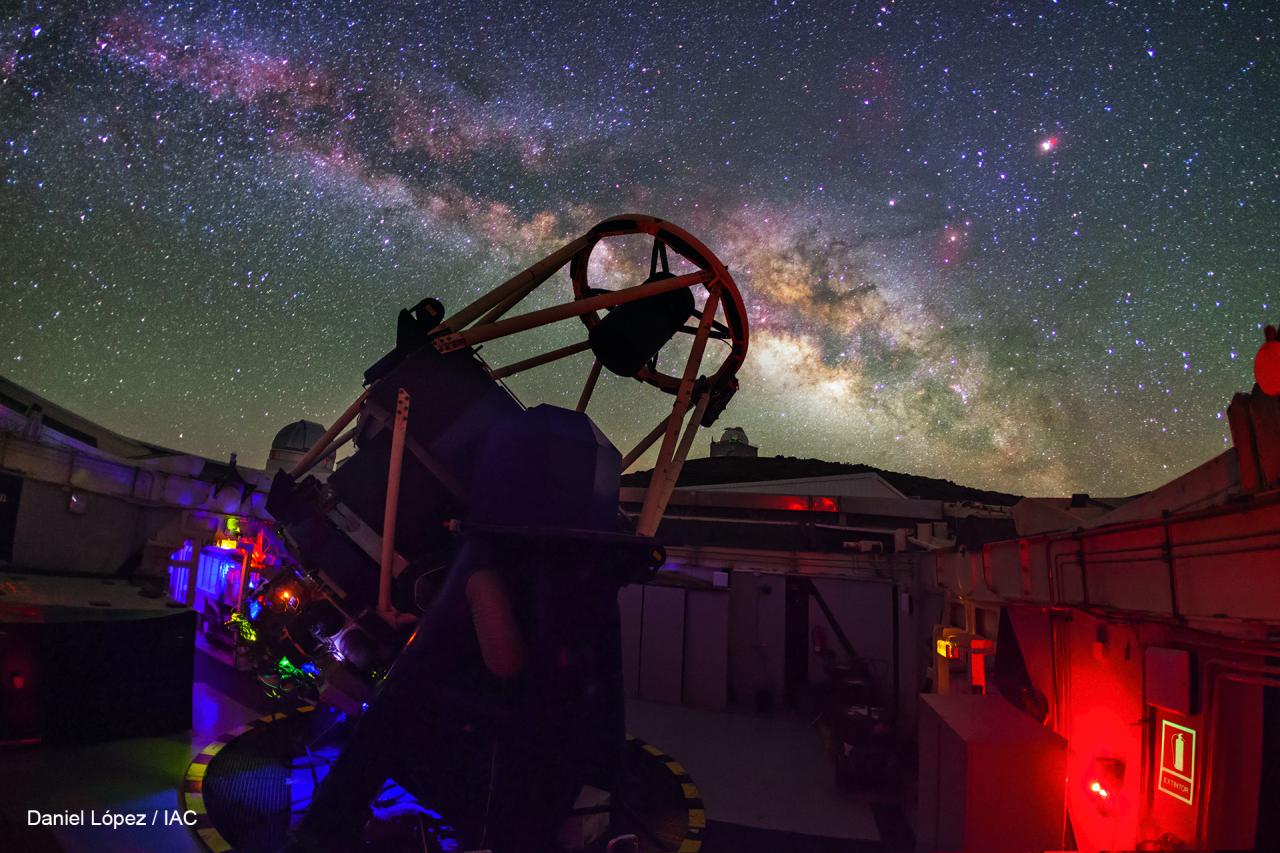
The Liverpool Telescope (LT) is a fully robotic telescope based at the Observatorio del Rocque de Los Muchachos on the Canary island of La Palma, Spain. It is owned and operated by Liverpool John Moores University as an international research facility, with financial support from the Science and Technology Facilities Council (STFC).
The telescope is of a Richey-Chrétien optical design, which means it has a hyperbolic primary and secondary mirror to minimise optical aberrations. The primary mirror is 2 metres in diameter. The telescope has an array of instrumentation mounted at the Cassegrain focus (underneath the primary mirror). At the focus the light is directed to the various instrumentation via a rotating flat mirror.
‘Fully robotic’ means there are no telescope staff or observers based at the observatory. Neither is the telescope ‘remote control’ in normal operation, with staff in Liverpool directing operations.
Science users put observations into the observing queue via a web-based interface. The telescope itself has a robotic controller which is responsible for safe operation of the telescope, and will choose what and when to observe based on its scheduling algorithm. This scheduler accounts for factors such as science priority, target altitude above the horizon and weather conditions when choosing what to observe next. Data products are available to science users within ~10 minutes of the observation being concluded, again via a web interface.
The LT is a ‘common user’ facility rather than a dedicated ‘project’, meaning it is used for a wide variety of science programmes. However, the flexibility and rapid response capabilities of robotic telescopes make them powerful tools for time domain astrophysics: the study of the changing sky. Typical science uses are follow-up of supernovae and gamma-ray bursts, observations of eclipsing binaries and transiting exoplanets, and tracking of fast-moving near-Earth objects.
For more details of the telescope and its instrumentation, see the LT website here:
http://telescope.livjm.ac.uk/
